21 Benefits Of Rosemary Essential Oil, Uses, & Side Effects
From boosting immunity to relieving joint pains, this oil can do wonders.
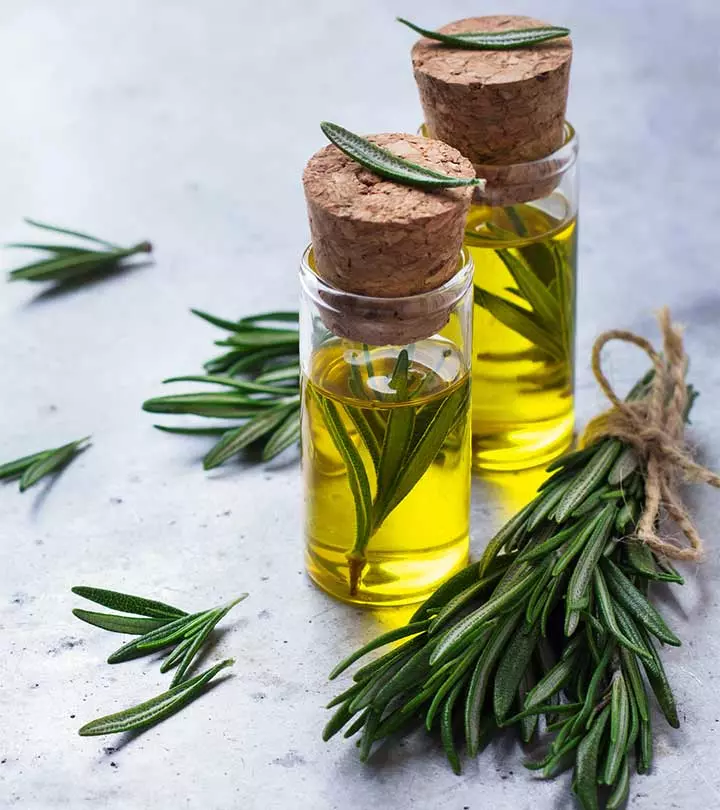
Image: ShutterStock
Rosemary essential oil benefits might make you want to use it. Humanity has known about and reaped the benefits of rosemary for ages because ancient Greek, Roman, and Egyptian cultures revered rosemary and considered it sacred. Rosemary oil is full of health-promoting compounds and provides anti-inflammatory, analgesic, antibacterial, antifungal, and expectorant benefits. The herb also improves digestive, circulatory, and respiratory functions.
This article discusses the benefits of rosemary essential oil, how to use it, and its risks. Take a look.
 Know Your Ingredient: Rosemary Essential Oil
Know Your Ingredient: Rosemary Essential OilWhat Is It?
Rosemary Essential Oil is extracted from the rosemary plant which is a herb.
What Are Its Benefits?
Its antioxidant and anti-inflammatory properties help treat muscle and joint pain, cough, cold, and the flu. It also boosts oral health and relieves stress and anxiety.
Who Can Use It?
Anyone not allergic to it can benefit from the oil.
How Often?
It can be used topically once or twice weekly and can also be inhaled under doctor’s advice.
Caution
The essential oil should be diluted before being applied to the skin to avoid irritation or allergic reactions.
In This Article
What Is Rosemary Oil?
Belonging to the mint family of Lamiaceae, rosemary (Rosmarinus officinalis) is an aromatic, evergreen herb that is found in the Mediterranean and Asia. It has needle-like leaves and its flowers can be pink, white, purple or blue. Since it looks pretty, it is widely used as an ornamental plant.
Rosemary holds a special place in gourmet cooking due to its wonderful fragrance and unique bitter flavor, especially when it comes to dishes that include any kind of roasted meat. But it’s the essential oil extracted from the leaves of rosemary that is its pièce de résistance.
Rosemary essential oil contains a ton of beneficial components like 1,8-cineole, alpha-pinene, and camphor. These lend it its anti-inflammatory, antibacterial, antifungal, analgesic, and expectorant properties and help promote better digestion, circulation, and breathing. Let’s take a closer look at what other wonderful nutrients this essential oil houses…
Key Takeaways
- Rosemary oil acts as an analgesic, and hence can improve digestion, boost the immune system, and alleviate muscle and joint pain .
- Rosemary oil has a calming effect which helps reduce anxiety and stress, and also improves cognitive functions and cures headaches.
- Rosemary oil can also promote hair growth and strengthen hair follicles.
- Being loaded with antioxidants, it helps in defying the signs of aging on skin and also reduces acne.
Rosemary Nutrition Profile
The essential oil of rosemary is extracted by steam distillation from fresh flowering tops that yield 1-2% oil. This oil contains a wide array of constituents and antioxidants. Its main chemical components are α-pinene, borneol, β-pinene, camphor, bornyl acetate, camphene, 1, 8-cineole and limonene. The nutritional value of rosemary herb is explained in the table given below.
| Rosemary herb (Rosmarinus officinalis), Fresh leaves, Nutritive value per 100 g. | ||
| (Source: USDA National Nutrient data base) | ||
| Principle | Nutrient Value | Percentage of RDA |
|---|---|---|
| Energy | 131 Kcal | 6.5% |
| Carbohydrates | 20.70 g | 16% |
| Protein | 3.31 g | 6% |
| Total Fat | 5.86 g | 20% |
| Cholesterol | 0 mg | 0% |
| Dietary Fiber | 14.10 g | 37% |
| Vitamins | ||
| Folates | 109 µg | 27% |
| Niacin | 0.912 mg | 6% |
| Pantothenic acid | 0.804 mg | 16% |
| Pyridoxine | 0.336 mg | 26% |
| Riboflavin | 0.152 mg | 12% |
| Thiamin | 0.036 mg | 3% |
| Vitamin A | 2924 IU | 97% |
| Vitamin C | 21.8 mg | 36% |
| Electrolytes | ||
| Sodium | 26 mg | 2% |
| Potassium | 668 mg | 14% |
| Minerals | ||
| Calcium | 317 mg | 32% |
| Copper | 0.301 mg | 33% |
| Iron | 6.65 mg | 83% |
| Magnesium | 91 mg | 23% |
| Manganese | 0.960 mg | 42% |
| Zinc | 0.93 mg | 8.5% |
As you can see, the rosemary herb and its essential oil are packed with amazing nutrients. Which could only mean one thing – they offer a host of benefits for your health, skin, and hair.
 Trivia
TriviaWhat Are The Benefits Of Rosemary Oil?
Rosemary oil is one of those unique ingredients that don’t just offer benefits for your physical health but also work wonders for your mental health.
From relieving pain and aiding digestion to reducing anxiety, rosemary oil covers just about every base. Let’s look at all benefits it has to offer in detail.
1. Boosts Immune System
When it comes to protecting your body from diseases, antioxidants are one of your biggest weapons. Rosemary oil contains myrcene, a chemical that acts as a powerful antioxidants and hunt down free radicals that can damage your cells and cause a number of infections and diseases. Thus, inhaling rosemary oil on a regular basis can help boost your immune system (1).
2. Is Anti-inflammatory
Suffering from aches and pains that never seem to go away? Then, it’s time you started massaging those areas with rosemary essential oil. This oil works as a powerful anti-inflammatory agent as it contains α-pinene that works to alleviate swelling and pain (2).
3. Promotes Digestion
This may sound a bit weird to you but rubbing rosemary oil on your stomach and the bottom of your feet can actually aid digestion. How, you ask? It’s because rosemary oil improves the quality of gastric acid secretion and the volume of bile produced by the liver – two components that are necessary for good digestion. Thus, it can help relieve constipation, stomach cramps, bloating, flatulence (yes, I mean farts), and symptoms of dyspepsiai Indigestion, which may be accompanied with upper abdominal pain, bloating, or a burning sensation followed by nausea. (3).
4. Alleviates Muscle And Joint Pain
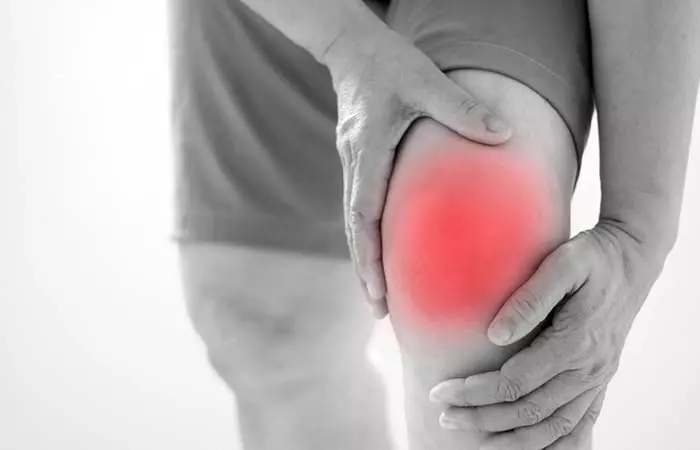
When it comes to combating pain, rosemary is somewhat of a triple threat due to its 1,8-cineole, alpha-pinene, and camphor content. It’s an analgesic (reduces pain), anti-inflammatory (reduces swelling), and an anti-nociceptive (blocks the sensation of pain). Therefore, it has traditionally been used to alleviate muscle pain, joint pain, sprains, and the symptoms of arthritis and rheumatismi chronic disease that causes severe inflammation and pain in bones, joints, and muscles. . Though rosemary oil has been approved by the German Commission E for treating these conditions and proven to have these effects in rats, there’s no conclusive scientific evidence that it does so in humans (4), (5).
5. Increases Circulation
The topical use of rosemary oil has been found to improve blood circulation in that area (6). Improved blood circulation can offer a host of other benefits like pain relief and aid rapid blood clotting, which, in turn, can speed up wound healing and promote hair growth.
6. Cures Headaches
Are frequent headaches and migraines making you miss school/work? Then, all you need to do is rub a couple of drops of rosemary oil between your palms and cup them over your nose and mouth. The pain relieving property of this potent essential oil has been found to be very effective for use as a natural remedy for headaches (7).
7. Relieves Cough, Cold, And Flu

Time for a little quiz. What’s the common factor between a cough, a cold, and a flu? Yep, they’re all caused by bacterial or viral infections. Rosemary essential oil, when inhaled, acts as a potent antimicrobial agent and fights off these infections (8).
8. Helps To Improve Respiratory Activity
If you want to breathe easy, it’s time you picked up a bottle of rosemary essential oil. This powerful oil has been found to provide significant relief when it comes to respiratory disorders (9).
The eucalyptol (1,8-cineole) and camphor present in rosemary oil help dilate the bronchi in your lungs and aid better flow of air. Thus, it helps in relieving a number of respiratory problems like clearing the chest and nasal congestion, reducing cough, cold, and sore throat, and treating symptoms of respiratory allergies and sinusitisi A condition caused by fluid build-up in the sinuses, leading to virus or bacterial infection. . Rosemary oil also possesses an antispasmodic property (relieves muscular spasms) that works well in treating bronchial asthma.
9. Lowers Stress
Whenever you feel stressed or have that all too familiar “fight-or-flight” urge, it’s nothing but the hormone cortisol that is being released into your body. Anyone who suffers from chronic stress can have an excess of cortisol being released in their body, which could ruin the delicate hormonal balance and disturb the normal metabolism, thus giving way to a number of other diseases. But there’s good news! Smelling rosemary oil has been found to reduce the level of cortisol in saliva significantly (10). So, the next time you feel like the stress of day-to-day life is getting to you, indulge in some aromatherapy with rosemary oil.
10. Helps Fight Cancer
A lot of research is currently going on to test the effect of rosemary oil on cancer. Carnosol, a component of rosemary oil, has shown particularly promising results in fighting cancer (11). Extensive research done on animals has also proven the anti-cancer effect of rosemary oil on the colon, pancreas, breast, prostate, cervical, bladder, ovarian cancer, and leukemia (12). It has also been shown to inhibit the spread of liver carcinomai A type of liver cancer that commonly affects people with liver disease or chronic hepatitis B and C. and slow down the growth of tumors (13). However, there is still a long way to go before an undisputed link is found between rosemary oil and its anticancer effects.
11. Removes Bad Odor

We all know that rosemary oil emits a lovely fragrance that is unmatched by any other scent. But what you probably didn’t know is that it’s the volatile compound myrcene found in this essential oil that lends it this pleasant fragrance. Rosemary oil is extensively used in room fresheners, diffusers, and scented candles to remove bad odors. It is also used in cosmetics, scented bath products, and perfumes.
12. Prevents STDs
Rosemary essential oil contains two very important compounds – beta-pinene and limonene – that possess antiviral properties. These two components have been found to reduce the infectivity of the herpes virus by an astonishing 100% when tested in-vitro (14). However, extensive research still needs to be done to see how effective the oil would be when inhaled or used topically to actually reduce the symptoms and infectivity of STDs in a real-life scenario.
13. Boosts Oral Health
Half a teaspoon of rosemary oil mixed in a cup of distilled water works as an excellent mouthwash. The antibacterial activity of rosemary oil helps prevent cavities, gingivitisi A form of gum disease affecting an area of the gum right at the base of your teeth, causing inflammation and swelling. , and plaque build-up. It even gets rid of the bacteria Streptococcus sobrinus that takes root in your tooth cavities and is a major cause of tooth decay (15).
14. Aids Liver Detoxification And Enhances Gallbladder Function
Multiple research studies have proven that the antioxidant property of rosemary oil helps in healing injured liver cells in rats and also stops the spread of cancerous cells in liver cells in-vitro (16), (17). Inhaling rosemary has also been known to regulate the production and storage of bile by the liver and gallbladder, thus improving the functioning of the digestive system.
15. Improves Cognitive Function
The next time you find yourself getting distracted while studying for an exam or just can’t seem to focus on the work assignment at hand, inhale some rosemary oil or add a few drops of it in your room diffuser. Not only does it help improve concentration, but it is also great for boosting memory (18).
16. Helps Reduce Nervous Tension And Fatigue

Inhaling rosemary oil when you’re feeling fatigued or tensed acts as a stimulant and helps increase your blood pressure, heart rate, and respiratory rate. This, in turn, helps you feel fresher and more energized (19).
17. Works As An Antidepressant
Another great way that rosemary oil benefits mental health is by acting as an antidepressant. The carnosol and betulinic acid found in rosemary oil have been found create an antidepressant effect in rats (20). Aromatherapy using rosemary oil also helps in relaxation and treats symptoms of depression (21).
18. Helps In Relieving Anxiety
Here’s some great news for all you nervous test takers out there! A research study had shown that inhaling rosemary oil before a test helped stress relief reduce test-taking stress and the overall level of anxiety in nursing students (22).
19. Reduces Acne And Fights Signs Of Aging
The topical application of rosemary oil has been found to reduce the inflammation caused by acne (23). But that’s not all! It also reduces under-eye puffiness and improves circulation to give you glowing skin. Additionally, including it in your skin care routine can help prevent sun damage and free radical damage and tightens your skin to combat signs of aging (24).
20. Enhances Hair Health
Say goodbye to all your hair woes with rosemary oil. Experts recommend rosemary for hair growth as it promotes hair growth by infusing a new lease of life into thinning and falling hair, giving you thicker locks. It also helps treat dandruff (25). Additionally, this essential oil has also been found to treat alopecia (26).
Nick Shell, a vlogger, shared his experience of using rosemary oil for a year in his video. He said, “I mean my hairline still does go back. But if anything though this has caused my hair to stop thinning and maybe it is actually thicker than it was a year ago (ⅰ).”
21. Acts As A Mosquito and Insect Repellent
Constantly pestered by mosquitoes and other bugs? Well, I say, no more! Rosemary essential oil contains limonene and camphor that work wonders in repelling all sorts of insects, especially mosquitoes (27).
So, you see, rosemary oil offers a whole range of health benefits, which only begs the question of how is one to use it? Well, compiled below are some of the best ways to use rosemary oil to your advantage.
Best Rosemary Oil Uses
- To Clear Out Phlegm: Rosemary oil works as an excellent expectorant. Just rub a couple of drops between your palms and cup them over your mouth and nose for a couple of minutes to expel phlegm from your chest.
- For Thick Hair: We already know that rosemary oil is a godsend for people with thinning hair. But if you want to boost its hair thickening properties even more, simply add a few drops of rosemary essential oil to a tablespoon of castor oil and two tablespoons of coconut oil and massage it into your hair.
- Enhances Prostate Health: The anti-inflammatory property of rosemary oil works great in enhancing prostate health. Just add a couple of drops of rosemary essential oil to a teaspoon of any carrier oil (coconut or olive oil are good options) and rub it under the testicles.
- Relieves Muscle And Joint Pains: Let the anti-spasmodic and anti-inflammatory properties of rosemary essential oil work their magic on your sore muscles and joint pains. Combine a couple drops each of rosemary and peppermint oil with a teaspoon of coconut oil. Massage this concoction on the problem areas for a few minutes to relieve the pain.
- Essential Oil Diffuser: The pleasant aroma of rosemary oil can provide relief from a number of respiratory problems like asthma, bronchitis, sinusitis, and the nasal congestion from a common cold. Just add 5 or more drops of rosemary oil to your room diffuser or vaporizer.
Inhaling rosemary oil helps ease tension and improve mental clarity. When using it in a diffuser, add three to five drops of the oil to the water reservoir and set the machine on to evenly distribute the scent around the room. For additional advantages, you can blend rosemary oil with other essential oils like lavender or lemon. When using rosemary oil, make sure it is pure and of high quality. Consult a healthcare provider in advance, especially if you are pregnant or have underlying medical issues.
Want some trivia that’ll make you look oh-so-knowledgeable at the next house party? Then, here are some interesting facts about rosemary oil for your benefit.
What Are Some Interesting Facts About Rosemary Oil?
Besides providing a range of mental and physical health benefits, rosemary makes for a quite an interesting plant in terms of its origin and usage. Here are a few interesting tidbits:
- The name rosemary originates from the Latin word rosmarinus, which means ‘mist of the sea.’ This is probably because it doesn’t need much water to grow and can survive on the humidity provided by the sea. This explains why it grows so well on the coast of the Mediterranean Sea.
- A rosemary plant can grow up to 5 meters in height, which is pretty amazing considering it’s a shrub.
- Rosemary has been used as a symbol of remembrance and scattered on graves since olden times.
- Rosemary was declared ‘Herb Of The Year’ in 2000 by the International Herb Association. (Honestly, I’m more surprised by the fact that there’s such a thing as an International Herb Association in existence. And, in case you were wondering, the Herb Of The Year for 2018 is hops.)
- This sweet plant has long been considered a symbol of fidelity and a good omen for marital bond. This is why sprigs of rosemary were fashioned into a headdress worn by the bride while the groom wore a twig on his chest.
 Fun Fact
Fun FactNow, that made for some nice fodder for your brain, didn’t it? The only thing left for you to know now is where you can buy rosemary essential oil. Well, just keep reading…
Where To Buy Rosemary Oil
You can buy rosemary essential oil from your local drugstore or any major online shopping site. However, make sure you look at at the testing on the oil to ensure it is high quality first.
Now, you may buy all the organic rosemary oil you want to avoid all the chemical preservatives in the world, but you can still experience an adverse reaction to it simply because of all the volatile and potent chemicals it is composed of. So, enlighten yourself a bit by reading up on the cautions for rosemary oil.
What Are The Cautions for Rosemary Oil?
Yes, rosemary is quite the wonder elixir that offers health benefits galore. However, there are still a few key things you need to keep in mind when it comes to its side effects. Here’s what you need to know:
- While using rosemary oil for skin, it is always recommended to dilute it with a carrier oil because applying it directly on your skin in its concentrated form has been reported to cause dermatitis.
- If you are epileptici A neurological disorder that causes seizures, muscle spasms, loss of awareness, abnormal behavior, etc. , it is best that you avoid using rosemary oil as it has been known to cause and aggravate seizures.
- Rosemary oil has the potential of increasing the risk of bleeding and bruising in people with bleeding disorders.
- Ingesting large amounts rosemary or its oil by pregnant women could possibly cause a miscarriage. Hence, it is best that pregnant and lactating women avoid it.
Rosemary essential oil may aid in healthy hair growth. But should you use it instead of medications such as minoxidil? Find out in the next section.
Rosemary Oil Vs. Minoxidil
Unlike rosemary oil, minoxidil is an over-the-counter medication often suggested by dermatologists for promoting hair growth. Applying rosemary oil may help improve blood circulation in the scalp, which may help improve hair growth (6). Whereas, Minoxidil helps promote hair regrowth and prolong the hair growth phase (28).
However, both of them may cause irritation in some people and minoxidil may also trigger itching and scaling (29). Therefore, it is recommended to consult a doctor to understand which product is safe for you and in what concentrations.
Infographic: Benefits Of Rosemary Essential Oil
Essential oils are known for the array of benefits they offer. They are used in aromatherapy and also have many other benefits. Rosemary essential oil is known for its refreshing aroma and may help improve overall health.
The following infographic provides information about rosemary essential oil benefits, uses, and dosage. Check it out to know!
Some thing wrong with infographic shortcode. please verify shortcode syntax
Rosemary essential oil has been used for its therapeutic properties since ancient times. Along with its exotic fragrance, rosemary has certain beneficial components like alpha-pinene and camphor that imparts anti-inflammatory and analgesici Medications or substances that provide temporary pain relief caused by headache, injury, or arthritis. attributes to this evergreen herb. While it helps improve your digestive, cardiovascular, and respiratory health, rosemary also allevaites muscle pain and headaches. It is also useful for mood enhancement and works to reduce stress and anxiety, promoting a feeling of overall well-being. You should make sure to dilute rosemary oil before use and avoid it for pregnant women and people with epilepsy as it may lead to adverse reactions.
Frequently Asked Questions
How does rosemary oil work?
Rosemary oil works through inhalation when added to a room diffuser or vaporizer. You could also use it topically, with a few drops added to your bath water or as a massage oil mixed with a carrier oil.
What is rosemary oil good for?
Rosemary oil is anti-inflammatory and is known to treat various skin and hair conditions when topically applied. When inhaled as a part of aromatherapy, it can prevent respiratory conditions, enhance immune functions, prevent joint pains, and reduce stress and anxiety.
How to make rosemary oil?
You cannot extract the essential oil of rosemary oil at home. However, you can make rosemary infused oil by dropping a few sprigs of dried rosemary leaves in a glass bottle filled with olive oil. Secure the lid tightly and place this bottle in a warm, dark place for two weeks before using it.
What are the oils that blend well with rosemary oil?
Rosemary oil blends well with a wide variety of other essential oils like wild orange, lemon, jasmine, lavender, frankincense, peppermint, basil, and eucalyptus.
Which rosemary oil is good for hair?
Any pure and organic rosemary oil is good for using on hair when combined with a carrier oil like jojoba or almond oil.
Does rosemary oil help hair regrowth?
Yes, rosemary oil does help hair regrowth as it stimulates blood circulation in the scalp.
Illustration: Benefits Of Rosemary Essential Oil, Uses, & Side Effects
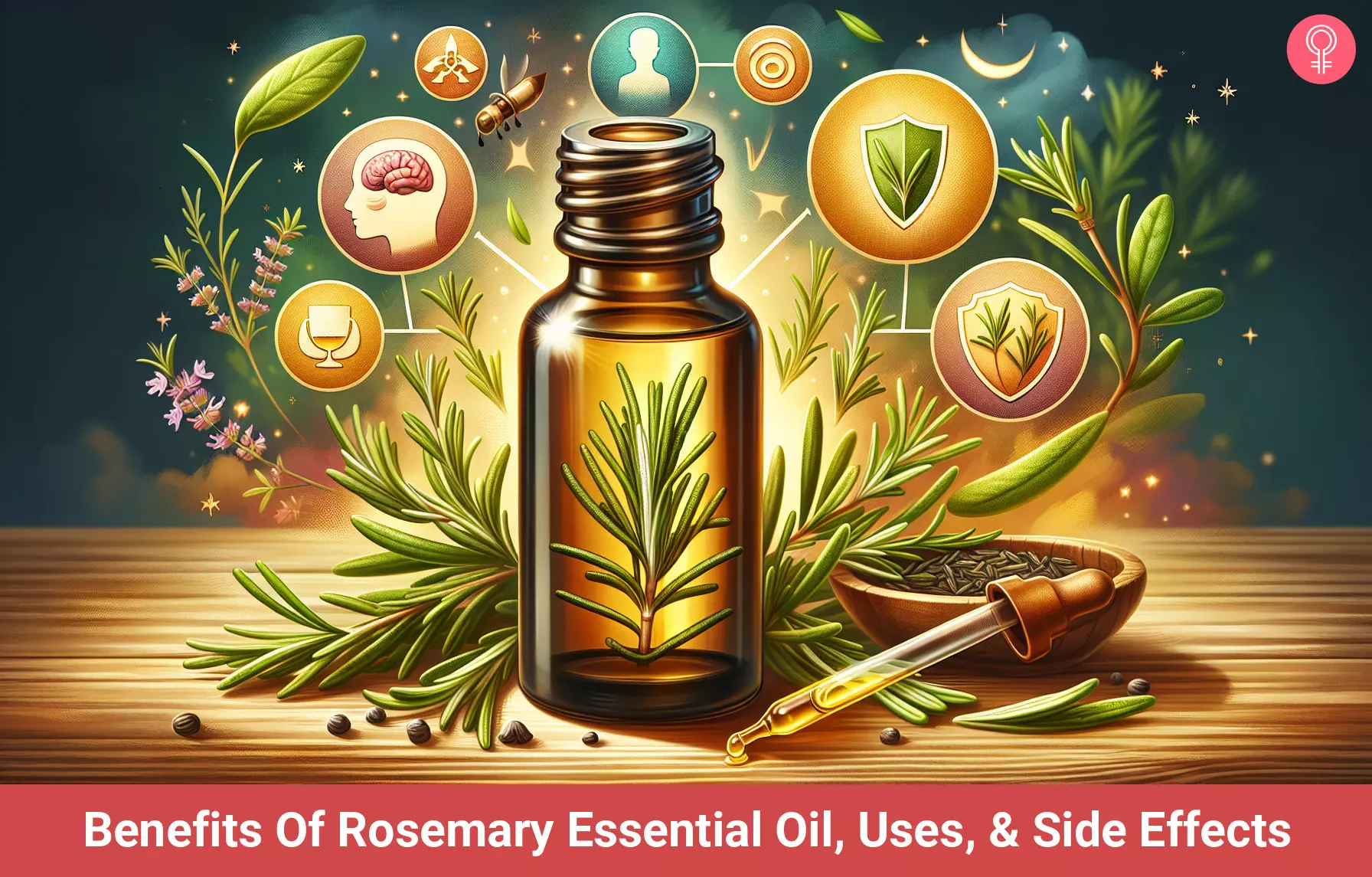
Image: Dall·E/StyleCraze Design Team
Rosemary essential oil has many benefits! Watch this video to learn how it can help improve your health and well-being.
Personal Experience: Source
StyleCraze's articles are interwoven with authentic personal narratives that provide depth and resonance to our content. Below are the sources of the personal accounts referenced in this article.
i. 1 YEAR AFTER Using Rosemary Oil for Hair Loss- Did It Work?!https://www.youtube.com/watch?v=GguwFGH8s2I
References
Articles on StyleCraze are backed by verified information from peer-reviewed and academic research papers, reputed organizations, research institutions, and medical associations to ensure accuracy and relevance. Read our editorial policy to learn more.
- “Antioxidant activities of rosemary (Rosmarinus Officinalis L.) extract, blackseed (Nigella sativaL.) essential oil, carnosic acid, rosmarinic acid and sesamol.” Akdeniz University, Turkey.
- “Anti-inflammatory and antinociceptive effects of Rosmarinus officinalis L. essential oil in experimental animal models.” State University of Maringá, Brazil.
- “Aromatherapy: Essential Oils for Vibrant Health and Beauty” Roberta Wilson, USA.
- “Rosemary.” University Of Maryland, USA.
- “Hydroalcoholic extract of Rosemary (Rosmarinus officinalis L.) and its constituent carnosol inhibit formalin-induced pain and inflammation in mice.” Azad Islamic University, Iran.
- “Investigations into the specific effects of rosemary oil at the receptor level.” Med. University Plovdiv, Bulgaria.
- “Effects of Aromatherapy in blending oil of Basil, Lavender, Rosemary, and Rose on Headache, Anxiety and Serum Cortisol level in the Middle-Aged Women.” Korean Society of Biological Nursing Science, South Korea.
- “In vitro antibacterial activity of some plant essential oils.” Loyola College.
- “Pharmacology of rosemary (Rosmarinus officinalis Linn.) and its therapeutic potentials.” Al-Fateh University of Medical Sciences, Libya.
- “Smelling lavender and rosemary increases free radical scavenging activity and decreases cortisol level in saliva.” Meikai University, School of Dentistry, Japan.
- “Carnosol: a promising anti-cancer and anti-inflammatory agent.” University of Illinois at Chicago, USA.
- “Anticancer Effects of Rosemary (Rosmarinus officinalis L.) Extract and Rosemary Extract Polyphenols.” Brock University, Canada
- “Supercritical rosemary extracts, their antioxidant activity and effect on hepatic tumor progression.” Universidad Autónoma de Madrid, Spain.
- “Antiviral activity of monoterpenes beta-pinene and limonene against herpes simplex virus in vitro.” University of Medical Sciences, Iran.
- “In vitro inhibitory effects of rosemary extracts on growth and glucosyltransferase activity of Streptococcus sobrinus.” Yuanpei University, Taiwan.
- “Antioxidant activity of rosemary (Rosmarinus officinalis L.) essential oil and its hepatoprotective potential.” University of Novi Sad, Serbia.
- “Antiproliferative, protective and antioxidant effects of artichoke, dandelion, turmeric and rosemary extracts and their formulation.” Università G. d’Annunzio Chieti-Pescara, Italy.
- “Aromas Of Rosemary And Lavender Essential Oils Differentially Cognition And Mood In Healthy Adults.” University Of Northumbria, UK.
- “Effects of Inhaled Rosemary Oil on Subjective Feelings and Activities of the Nervous System.” Chulalongkorn University, Thailand.
- “Antidepressant-like effects of fractions, essential oil, carnosol and betulinic acid isolated from Rosmarinus officinalis L.” Universidade Federal de Santa Catarina, Campus Universitário, Brazil.
- “Depression.” University Of Maryland, USA.
- “The Effects of Lavender and Rosemary Essential Oils on Test-Taking Anxiety Among Graduate Nursing Students.” Florida Atlantic University, USA.
- “Rosmarinus officinalis Extract Suppresses Propionibacterium acnes–Induced Inflammatory Responses.” Taipei Medical University, Taiwan.
- “Skin Rejuvenation: The Use of Rosemary from Food to Face.” Southwest Institute Of Natural Aesthetics, USA.
- “Aromatherapy Handbook for Beauty, Hair, and Skin Care.” Keller, E. USA
- “Randomized trial of aromatherapy. Successful treatment for alopecia areata.” Aberdeen Royal Infirmary, Scotland.
- “Mosquito repellent activity of essential oils of aromatic plants growing in Argentina.” Universidad Nacional de Córdoba, Argentina.
- “Minoxidil” US National Library of Medicine.
- “Minoxidil and its use in hair disorders: a review” US National Library of Medicine, USA.
Read full bio of Dr. Scott Johnson
Read full bio of Arshiya Syeda
Read full bio of Ravi Teja Tadimalla
Read full bio of Sindhu Koganti







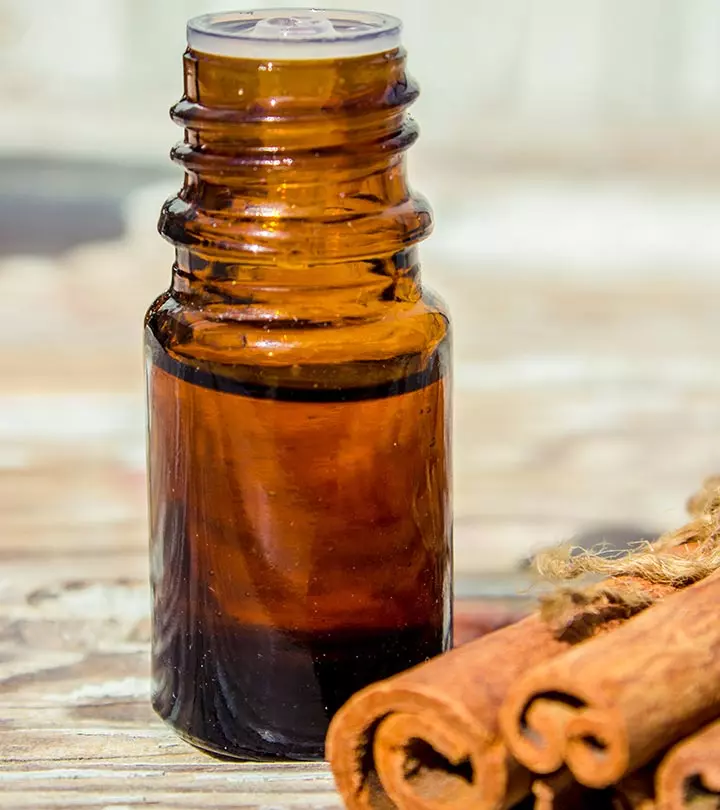


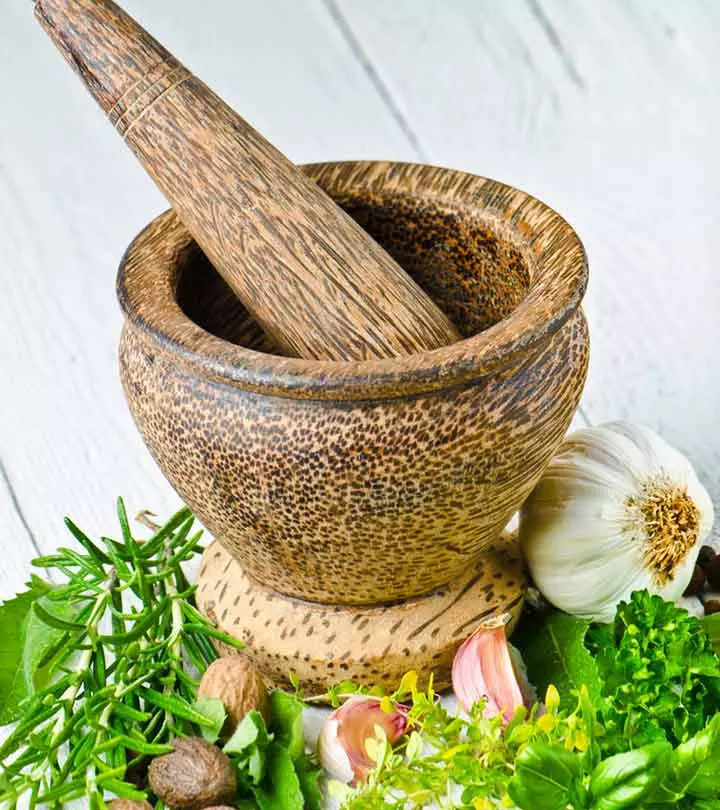
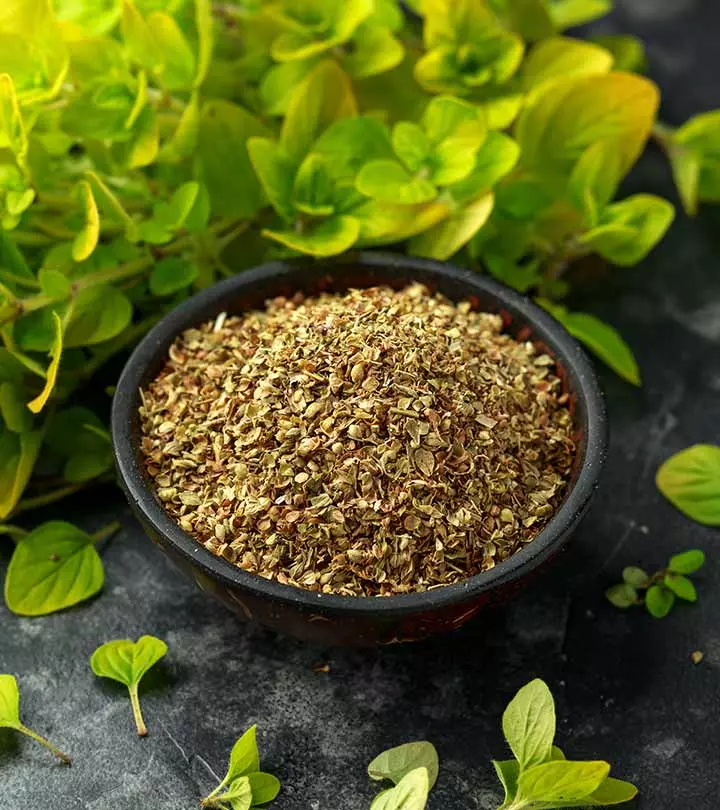
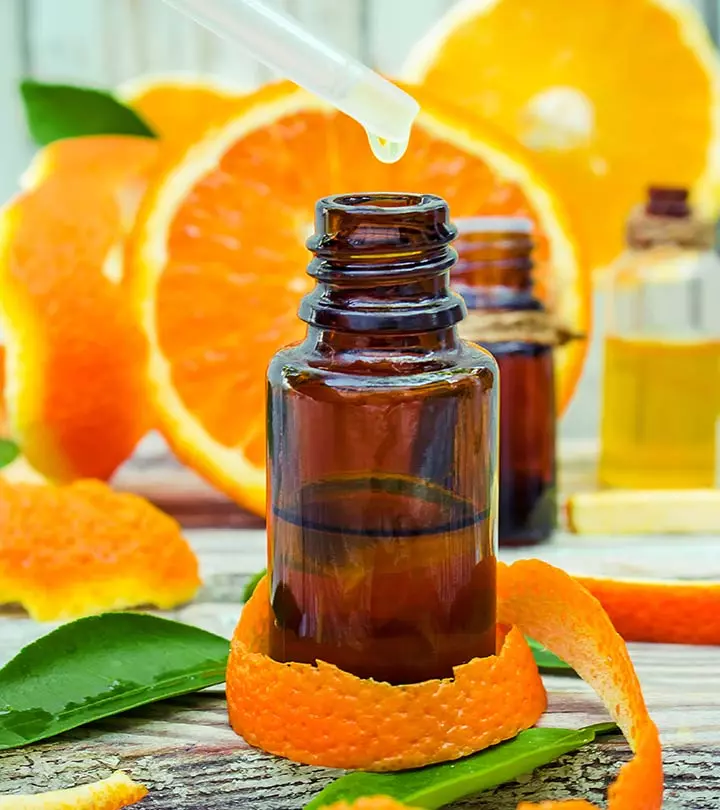
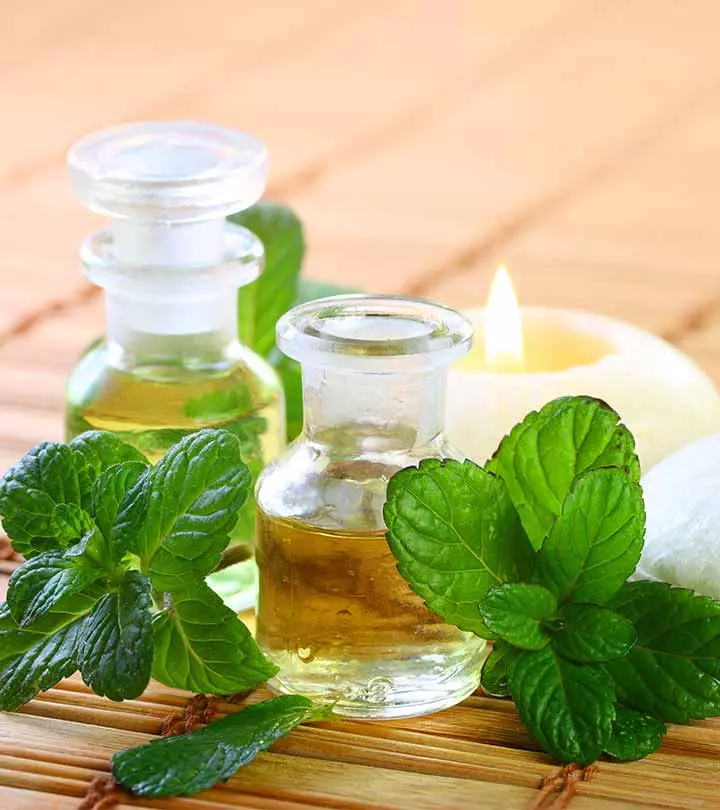
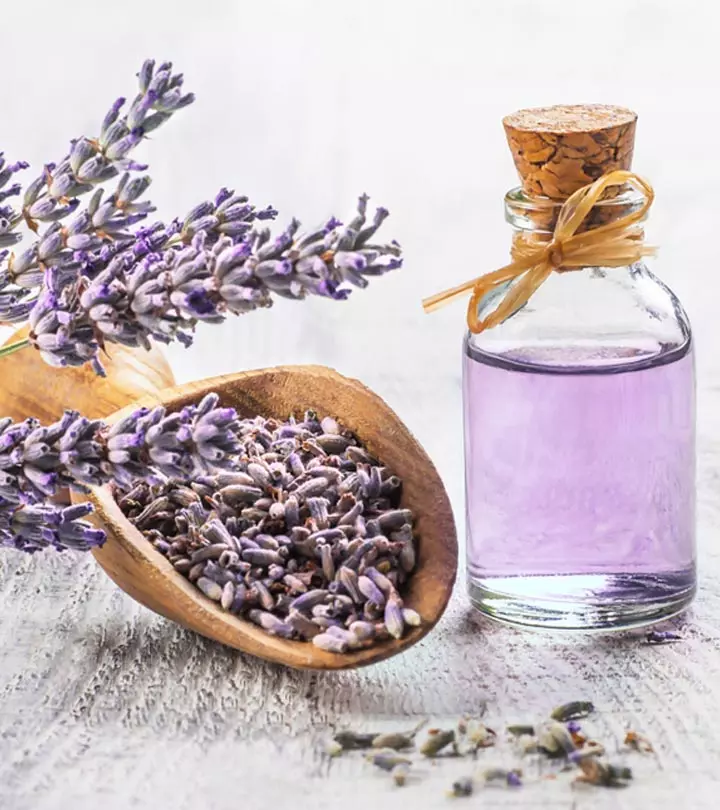
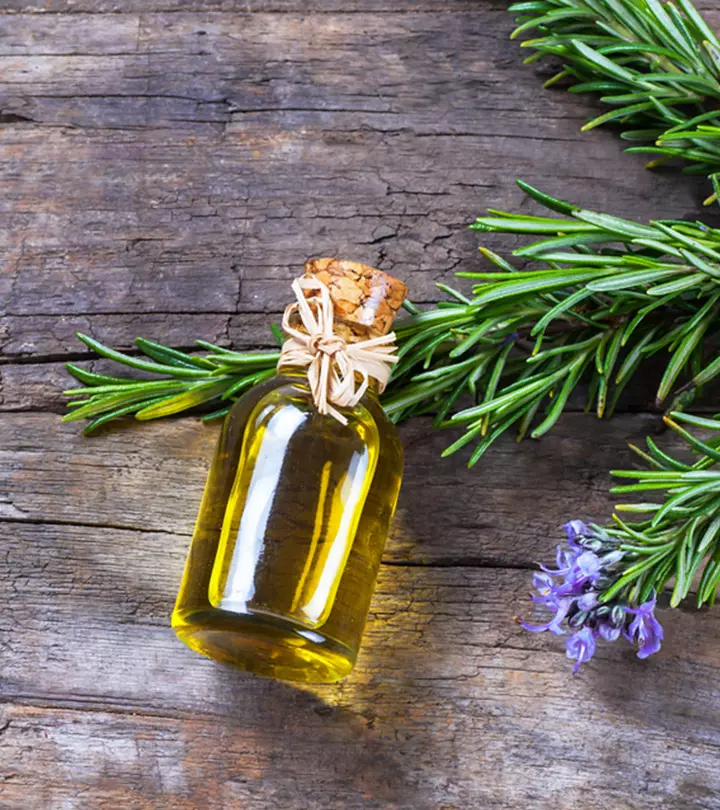


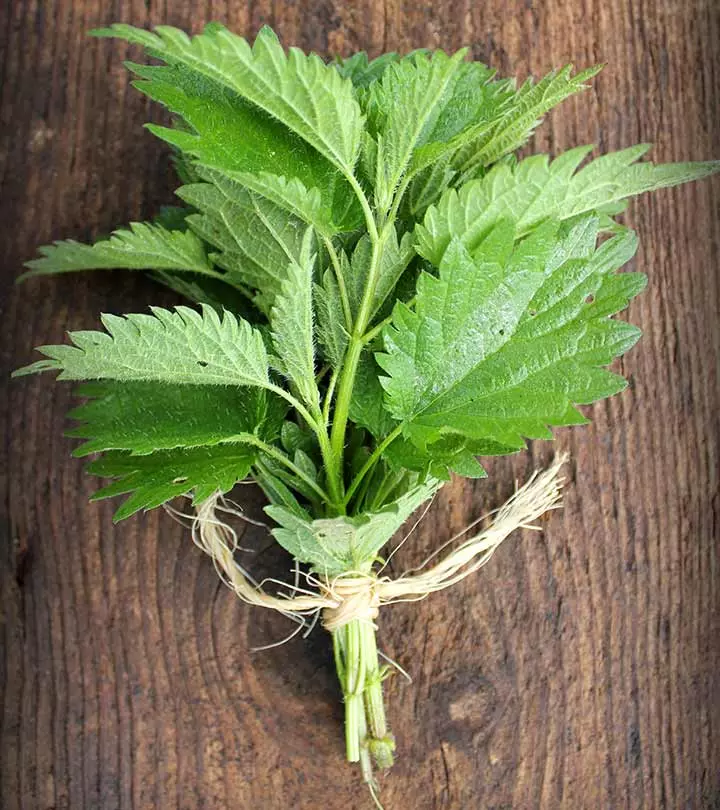

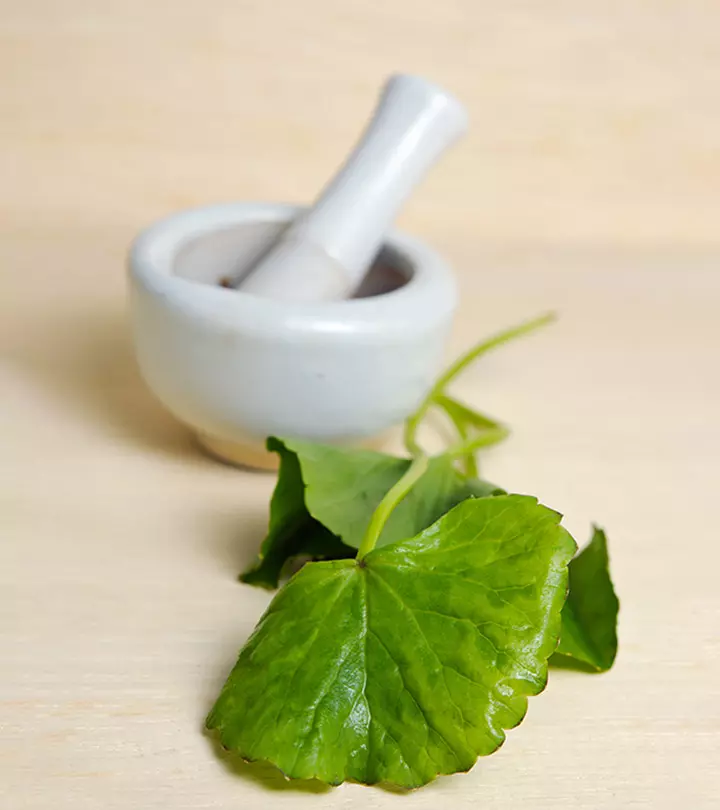

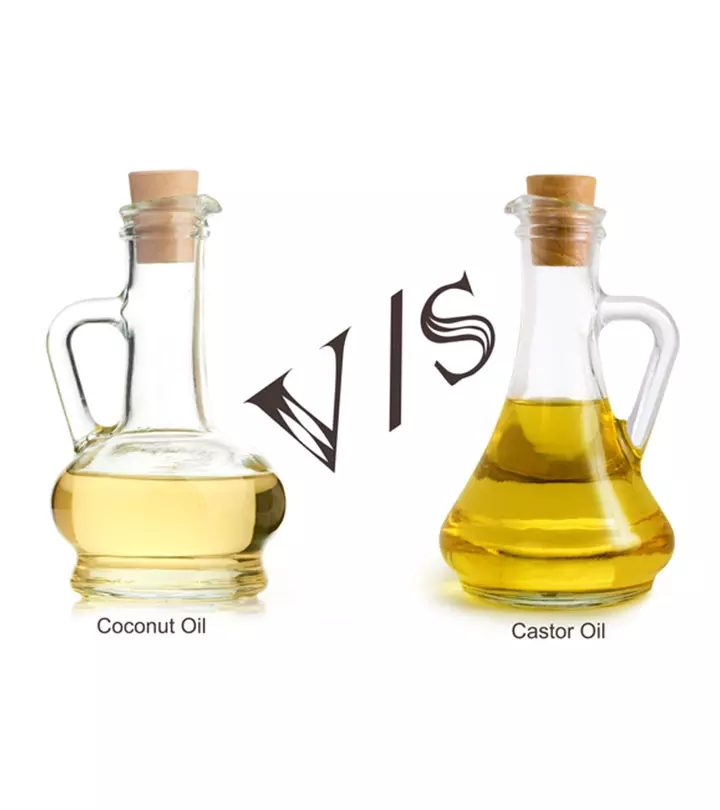




Community Experiences
Join the conversation and become a part of our empowering community! Share your stories, experiences, and insights to connect with other beauty, lifestyle, and health enthusiasts.